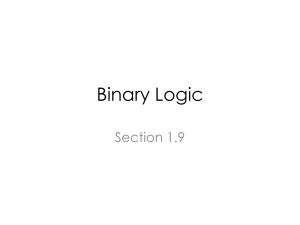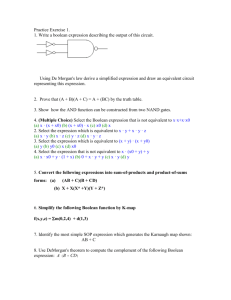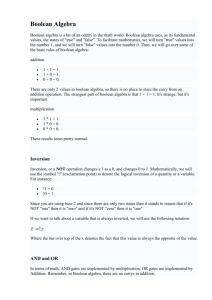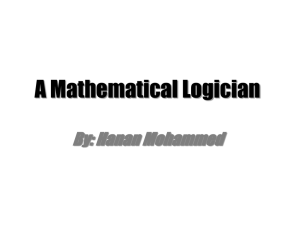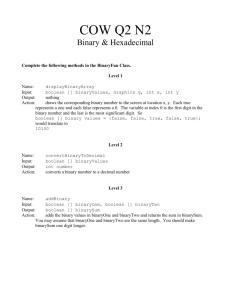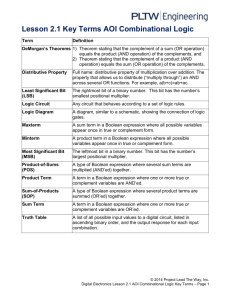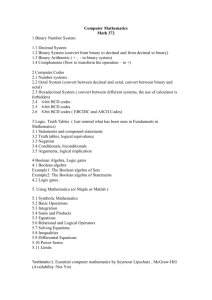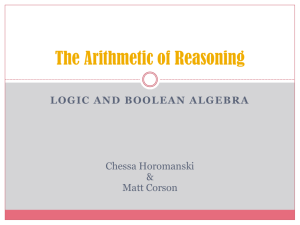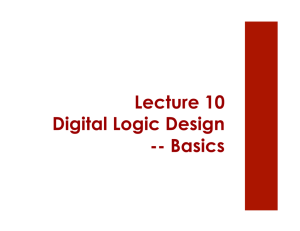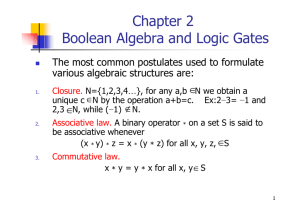Boolean logic in computing, electrical engineering, mathematics
advertisement
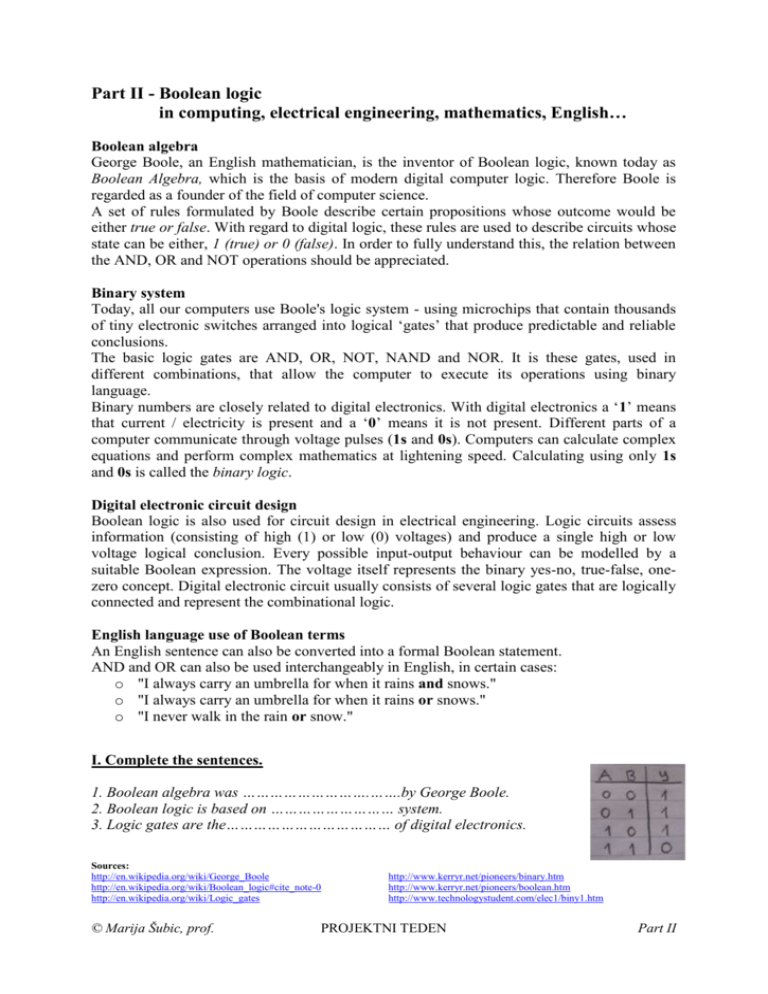
Part II - Boolean logic in computing, electrical engineering, mathematics, English… Boolean algebra George Boole, an English mathematician, is the inventor of Boolean logic, known today as Boolean Algebra, which is the basis of modern digital computer logic. Therefore Boole is regarded as a founder of the field of computer science. A set of rules formulated by Boole describe certain propositions whose outcome would be either true or false. With regard to digital logic, these rules are used to describe circuits whose state can be either, 1 (true) or 0 (false). In order to fully understand this, the relation between the AND, OR and NOT operations should be appreciated. Binary system Today, all our computers use Boole's logic system - using microchips that contain thousands of tiny electronic switches arranged into logical ‘gates’ that produce predictable and reliable conclusions. The basic logic gates are AND, OR, NOT, NAND and NOR. It is these gates, used in different combinations, that allow the computer to execute its operations using binary language. Binary numbers are closely related to digital electronics. With digital electronics a ‘1’ means that current / electricity is present and a ‘0’ means it is not present. Different parts of a computer communicate through voltage pulses (1s and 0s). Computers can calculate complex equations and perform complex mathematics at lightening speed. Calculating using only 1s and 0s is called the binary logic. Digital electronic circuit design Boolean logic is also used for circuit design in electrical engineering. Logic circuits assess information (consisting of high (1) or low (0) voltages) and produce a single high or low voltage logical conclusion. Every possible input-output behaviour can be modelled by a suitable Boolean expression. The voltage itself represents the binary yes-no, true-false, onezero concept. Digital electronic circuit usually consists of several logic gates that are logically connected and represent the combinational logic. English language use of Boolean terms An English sentence can also be converted into a formal Boolean statement. AND and OR can also be used interchangeably in English, in certain cases: o "I always carry an umbrella for when it rains and snows." o "I always carry an umbrella for when it rains or snows." o "I never walk in the rain or snow." I. Complete the sentences. 1. Boolean algebra was ……………………….…….by George Boole. 2. Boolean logic is based on ……………………… system. 3. Logic gates are the……………………………… of digital electronics. Sources: http://en.wikipedia.org/wiki/George_Boole http://en.wikipedia.org/wiki/Boolean_logic#cite_note-0 http://en.wikipedia.org/wiki/Logic_gates © Marija Šubic, prof. http://www.kerryr.net/pioneers/binary.htm http://www.kerryr.net/pioneers/boolean.htm http://www.technologystudent.com/elec1/biny1.htm PROJEKTNI TEDEN Part II II. Which logic gate am I? A B Y A B Y 0 0 1 1 0 1 0 1 0 0 0 1 0 0 1 1 0 1 0 1 0 1 1 1 …………. …………. A 0 0 1 1 B 0 1 0 1 Y A B Y 1 1 1 0 0 0 1 1 0 1 0 1 1 0 0 0 …………. …………. III. Look at the picture and answer. 1. What do these acronyms stand for? GND Vcc V & 2. Which logic gates have been used? 3. In which IC the IEC symbols have been used? 4. In which IC the ANSI symbols have been used? AND / OR / NAND / NOR A/B A/B IEC - International Electrochemical Commission ANSI - American National Standards Institute What does ISO stand for? IV. HOMEWORK Interactive exercise – LOGIC GATES http://www2.arnes.si/~sspmsubi/GATES1.htm *V. Simplifying Boolean Algebra - VIDEO Boolean Operators - VIDEO Boolean Algebra – Ppt Presentation © Marija Šubic, prof. PROJEKTNI TEDEN Part II
